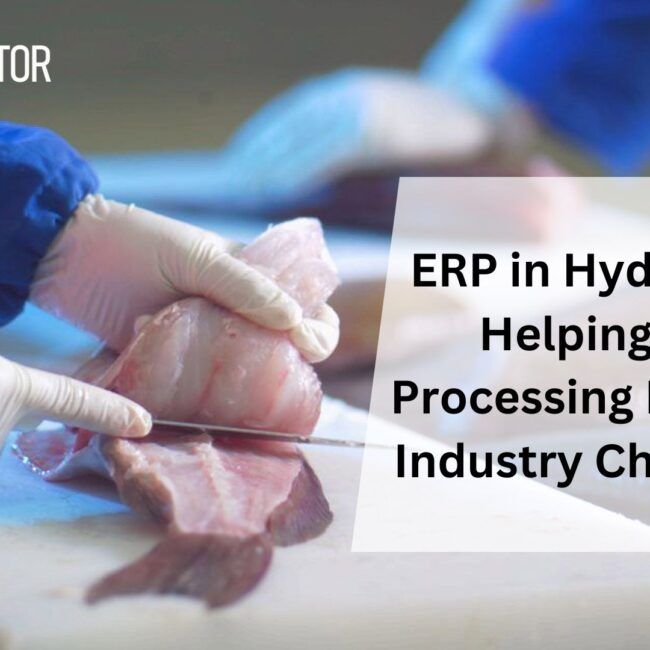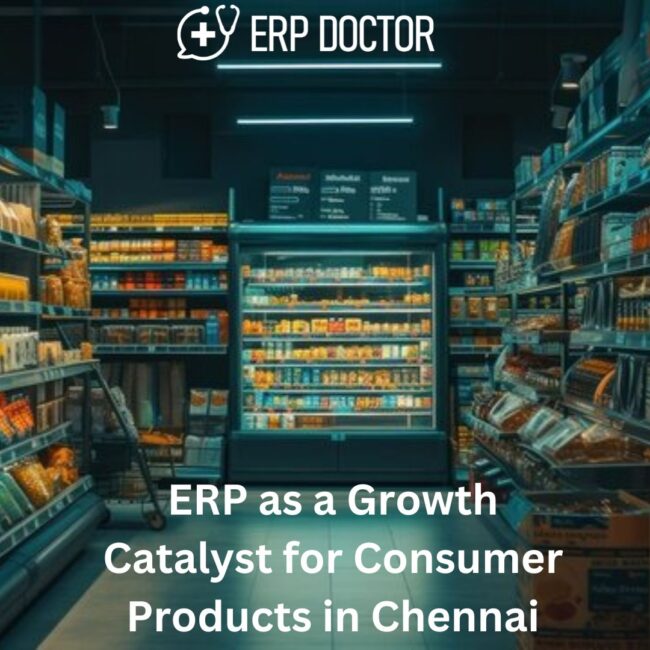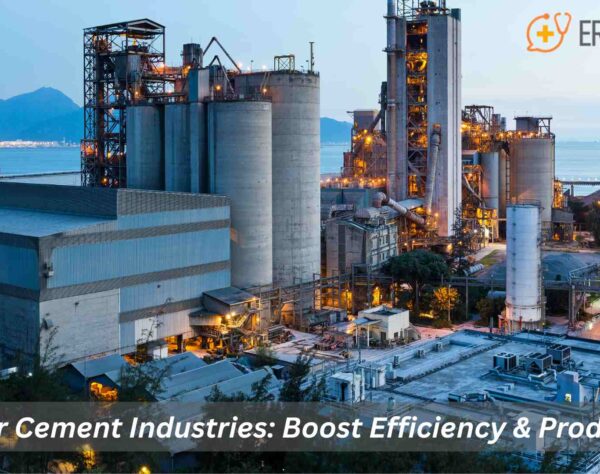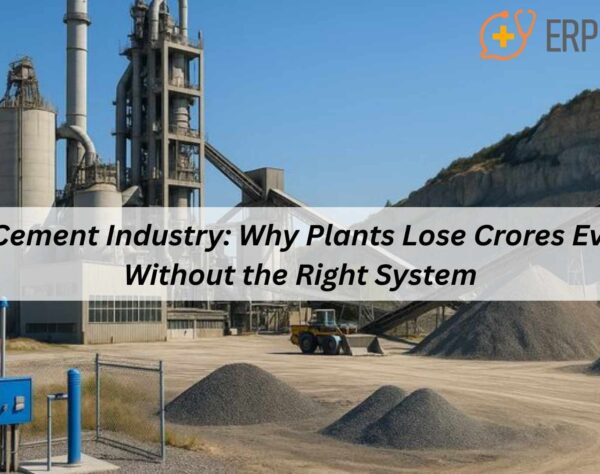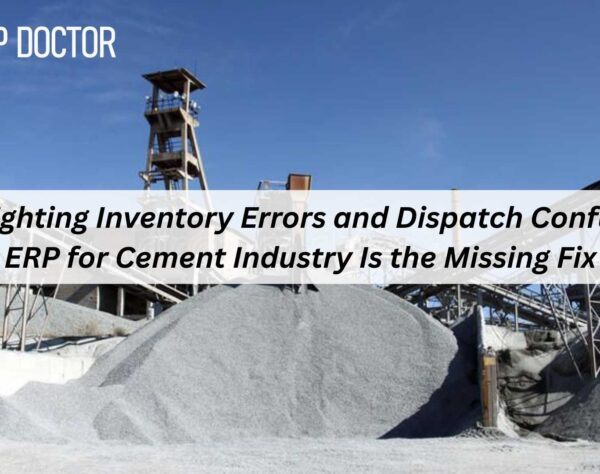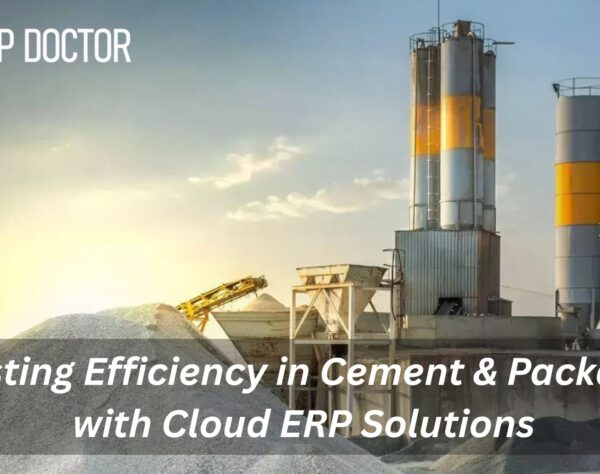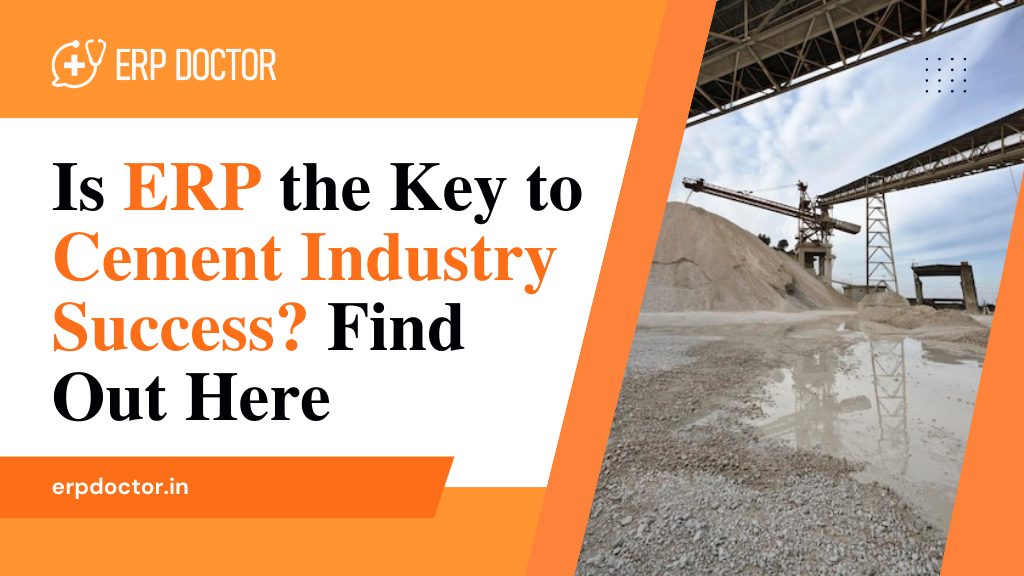
Is ERP the Key to Cement Industry Success? Find Out Here

How ERP Can Propel Your Cement Business to Success
Running a cement business is no easy feat. With constant fluctuations in raw material costs, intricate production lines, and pressure to meet sustainability goals, staying competitive can be a challenge. But what if there was a solution to streamline your operations and boost efficiency across the board? The answer might just be ERP Software. Whether you’re overseeing production, logistics, or managing customer relations, an ERP System could be the game-changer your business needs. So, is ERP for Cement Industry truly the key to success? Let’s explore how ERP Integration and ERP Implementation can make a real difference and help solidify your success!
Why the Cement Industry Needs ERP Solutions
The cement industry can be a tough puzzle to solve, with everything from procurement to production and customer relations to manage. That’s where ERP for Cement Industry Success comes in! It brings all your operations together, providing real-time data and streamlining processes, so you can focus on what matters. Here’s how ERP Software can help your cement business thrive:
1. Efficient Production Management
An ERP system allows you to manage production schedules, track inventory, and minimize waste. You can keep tabs on raw materials, machinery performance, and even predict when maintenance will be needed – all of which help keep things running smoothly.
2. Cost Control and Profitability
In the cement industry, controlling costs is crucial, especially when it comes to raw materials and transportation. An ERP System can help track expenses, optimize resources, and even forecast price fluctuations, helping your business stay profitable no matter the market conditions.
3. Sustainability and Compliance
With growing environmental concerns, staying compliant with regulations is more important than ever. ERP Software can help your business stay on top of emissions, energy consumption, and waste management, making it easier to meet local and global standards while pushing your sustainability efforts forward.
4. Improved Customer Service
A big part of growing your business is keeping your customers happy. With real-time data from ERP, you’ll be able to predict order fulfillment times, ensure timely deliveries, and track inventory more accurately. All of this adds up to better customer satisfaction and loyalty.
5. Streamlined Procurement and Supply Chain Management
ERP Integration brings departments together, improving coordination from procurement to production. It helps manage relationships with suppliers, improve demand forecasting, and prevent stockouts, making your supply chain more agile and responsive.
ERP Implementation: Transforming Your Cement Business
Adopting an ERP Solution isn’t something you do on a whim—it requires careful thought and planning. ERP Implementation needs to be tailored to fit the unique needs of your business. Here’s how to get started:
- Assessing Needs: Look at your current processes and pain points. Understanding what needs improvement helps you figure out which ERP features will be the most helpful.
- Customization: Not every ERP system will be a perfect fit out of the box. Customizing the system ensures that it aligns with your specific goals and operations.
- Training: Once the system is set up, it’s important to make sure your team knows how to use it. Proper training helps maximize the system’s potential.
- Ongoing Support: Even after implementation, having support to handle issues and updates is crucial to keep things running smoothly.
By following these steps, you’ll ensure that your ERP System becomes a key part of your success story.
FAQs About ERP in the Cement Industry
1. What is ERP Software, and how does it benefit the cement industry?
ERP Software is a suite of applications that helps businesses manage their core operations, from production to inventory to finance. For cement businesses, it helps streamline processes, reduce costs, and provide better insights to improve decision-making.
2. How long does ERP Implementation take in the cement firms?
The timeline for ERP Implementation can vary depending on the size and complexity of your business. On average, it can take anywhere from 6 months to a year to fully set up and optimize the system.
3. Is ERP Integration difficult for cement companies?
It can seem intimidating at first, but with careful planning and expert guidance, ERP Integration can be a smooth process. Many ERP vendors offer support and consulting to help make the transition easier.
4. Can ERP Software help reduce cement production costs?
Absolutely! ERP Software helps businesses monitor costs in real-time, optimize resource usage, and minimize waste. By providing better forecasting and insights, it can help control costs and keep your business profitable.
5. What are the key features to look for in an ERP System for the cement industry?
Look for features like real-time production tracking, financial management tools, inventory control, supply chain integration, and reporting capabilities. These ensure the ERP system meets the specific needs of your cement business.
The Secret to Cement Industry Success: ERP Solutions
When it comes to the cement industry, where operational efficiency and cost control are key to staying competitive, ERP Solutions offer a powerful way to streamline your business. From improving production efficiency to ensuring compliance with environmental standards, ERP Software can transform the way you work.
Ready to explore how an ERP System can boost your business? Don’t wait—start improving your operations and securing success today! Contact us at erpdoctor.in for the perfect solution.
Need expert advice? Fill out the form below, and we’ll get in touch soon!


